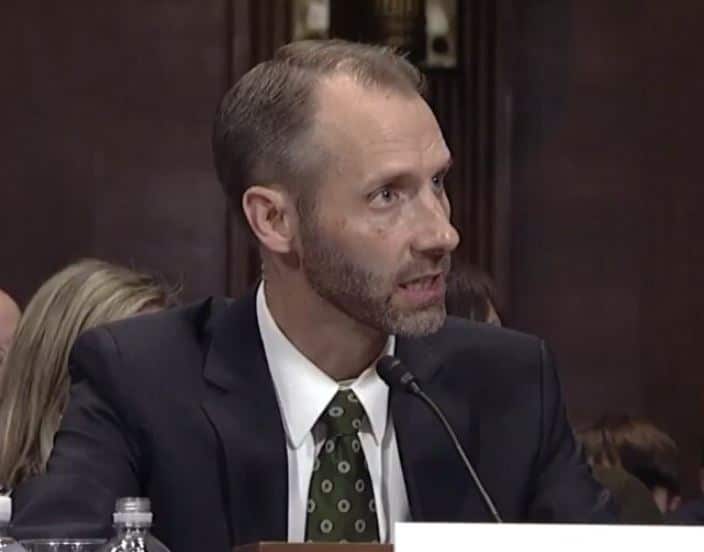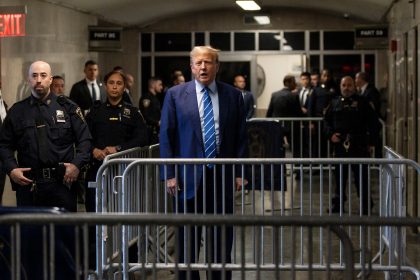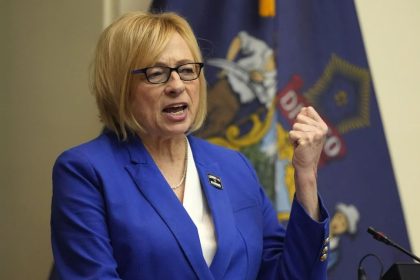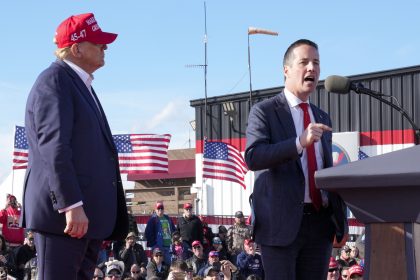Election Commission Vice Chair Resigns, Leaving It Without Quorum

WASHINGTON – Matt Petersen, a Republican appointment to the Federal Election Commission and most recently, its vice chairman, has resigned his seat, leaving the panel overseeing campaign laws without a quorum.
Petersen’s departure leaves the FEC with only three of the six commission seats filled heading into the 2020 election cycle, meaning the commission can’t legally call any meetings, issue fines, conduct audits, make rules or make decisions on investigations.
In his resignation letter to President Donald Trump, Petersen said “throughout my service, I have faithfully discharged my duty to enforce the law in a manner that respects free speech rights, while also fairly interpreting the relevant statutes and regulations and providing meaningful notice to those subject to FEC jurisdiction.”
Trump briefly nominated Petersen to serve as a federal judge in the District of Columbia but withdrew the nomination at Petersen’s request after a video clip from his confirmation hearing showed him unable to answer basic questions about legal procedure.
Petersen has not said what he will do when his resignation is effective Friday.
In a statement on the FEC’s website he said, “I am deeply grateful for the opportunity to have served on the Commission. The work of a Commissioner is challenging because it involves taking actions that impact the free speech rights of the American people. For this reason, I take satisfaction in having fulfilled my obligation to safeguard First Amendment interests while faithfully administering and enforcing the federal campaign finance laws.”
President George W. Bush had first nominated Petersen, a former staffer to the late Sen. Bob Bennett, to the FEC in 2008, and he has served as chairman of the commission twice.
Petersen’s tenure on the Commission has coincided with several court cases that significantly changed campaign finance law, the most notable being the Supreme Court’s opinion in Citizens United v. FEC.
As a result, the Vice Chairman played a large role in shaping the post-Citizens United legal framework governing Super PACs and corporate and union political speech.
He also helped draft new procedures affording enhanced rights and protections for individuals and organizations involved in FEC enforcement matters, audits, and advisory opinion requests.
“I will miss Matt,” said FEC Chairwoman Ellen Weintraub, a Democrat. “For 11 years, he has been a gracious and steady colleague on the Commission. I have especially enjoyed working together with him this year as the FEC’s Chair and Vice Chair. I wish Matt every success in the next chapter of his story.”
Commissioner Caroline Hunter, a fellow Republican, said, “I wish everyone had the pleasure of working with Matt. He is that rare professional who combines genuine kindness and warmth with a razor-sharp intellect and a great sense of humor. His collegiality here at the Commission has become legendary, as has his determination to protect the First Amendment rights of all Americans. We will miss him.”
“I know I speak not only for myself, but for all of our staff by expressing the view that the agency is losing one of the finest Commissioners that has served on the Commission,” said Commissioner Steven T. Walther, a Republican. “He has injected a steady, even-handed and positive approach to our deliberations, often delivered with a much needed good sense of humor that has often made all the difference in the outcome of our deliberations. The agency will miss him sorely, and so will I.”
Prior to joining the commission, Petersen served in senior positions in both houses of Congress: first, as counsel to the Committee on House Administration and then as Republican chief counsel to the Senate Committee on Rules and Administration.
He was extensively involved in the crafting of the Help America Vote Act of 2002—the election reform bill passed in the wake of the 2000 presidential recount— and was chief adviser to the Republican floor manager during the Senate debate on the Honest Leadership and Open Government Act of 2007, the most recent comprehensive revision of federal lobbying and government ethics laws.
























